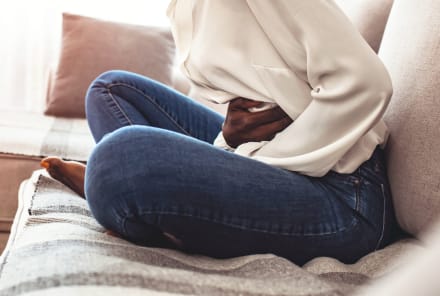Advertisement
Innovators Are Making Strides To Democratize Longevity In 2022

It seems that as long as we have recorded history, humans have been trying to defy mortality—seek the elixir of life or fountain of youth, if you will. In our modern era, that quest hasn't exactly faltered; it just faced a bit of rebranding. Now, the holy grail is optimizing longevity.
Like the mythical sources of immortality in ancient times, the science and business of longevity have felt pretty elusive, reserved for only the scientific elite and wealthy biohackers. (Take the new anti-aging company Altos Lab, funded by billionaires like Jeff Bezos and Yuri Milner.)
However, a number of trailblazing scientists, experts, and innovators are working to spread that wealth, making longevity research and resources available to the masses. And no, that doesn't necessarily mean extending lifespans to 200 years old—but rather, providing resources to improve healthspans, allowing people to lead happier, healthier lives for as long as possible.
As longevity expert and Harvard geneticist David Sinclair, Ph.D., shares with mbg, his mission is to "democratize" longevity drugs, education, and knowledge. "I'm working to make sure the longevity medicines we are developing are going to be cheap and widely available," he says. "Before that, my goal is to educate the world that our health in old age is modifiable by making small changes to lifestyle." Not only does he share much of his knowledge in his book Lifespan: Why We Age and Why We Don't Have To, but in January, he's also launching an eight-episode podcast series that aims to share science-backed tools for slowing and even reversing aging.
And Sinclair certainly is not alone in this endeavor. With the latest wave of products, technologies, and insights we've observed in the last 12 months, it seems 2022 may be the year we truly begin to take strides toward this pursuit.
New and improved at-home resources.
"We are living through one of the greatest medical revolutions in human health, with medical wearables, home testing, and the ability to measure and control one's biological age," says Sinclair. "With over $20B being invested into longevity research and development, 2022 is set to be a turning point that ushers in an age in which we have much more control over the human body and an understanding about which lifestyles have the most impact on our present and future health."
In our 2021 Wellness Trends, we discussed the rise of wearables with health micro-tracking features—such as skin temperature variation, pulse oximetry, blood oxygen sensors, body composition, heart rate variability, respiratory rate, and advanced sleep metrics. Suddenly, data previously only available in advanced medical facilities was now accessible to the public—all from the convenience of a small wearable device.
On the heels of the influx of new health trackers, in 2021, we saw companies go one step further to help get a better picture of an individual's overall health. We're talking about the at-home testing boom.
Perhaps a response to the rise of telemedicine, the interest in personalized health, or mounting emphasis on well-being and longevity as a whole—whatever the catalyst, there have never been more accessible, at-home ways to get a detailed breakdown of your health.
Take Viome, for example, a testing service that analyzes your blood and stool, then produces health insights, personalized food recommendations, and even targeted supplements for your unique biology.
"Viome is dedicated to creating a disease-free world where people can take control of their health from the comfort of their own homes," says Viome Founder and CEO Naveen Jain. "This year, they reached the outstanding goal of helping over 300,000 individuals improve their overall health through health insights and actionable nutrition recommendations." As Jain shares with mbg, just 10 years ago, a test that sequenced complete gene expression (mRNA) of a biological sample could cost over $10,000—now, Viome offers it for $99.
What's more, the data collection goes beyond individual benefit and may have far-reaching impacts. "Viome has published clinical trial results that showed more than 30% improvements in depression, diabetes, IBS, and anxiety after four months with people using Viome food and supplement recommendations," says Jain. "Using this data, they have developed predictive biomarkers for over 30 chronic diseases including metabolic diseases, autoimmune diseases, neurodegenerative diseases, mental health, and biological aging."
Of course, Viome is just one example of a company bringing advanced health testing to consumers' homes. Everlywell Health offers at-home blood tests for everything from metabolism to vitamin D and inflammation, to help capture a snapshot of various aspects of your health status.
Earlier this year, Lumen hit the market as the first handheld, portable device to accurately measure metabolism, using just your breath—allowing consumers to better optimize blood sugar levels, improve metabolic flexibility, and help stave off metabolic disease.
Levels—a technology that gives you real-time biometric feedback about how your body reacts to food and exercise, through continuous glucose monitoring—has skyrocketed in popularity, with a current waitlist of over 100,000 people.
Sinclair personally uses InsideTracker, a blood test that looks at 43 biomarkers to measure health. He's also developed a test that measures biological age and provides recommendations. (You can sign up here to be one of the first to try it.)
All of that is just the tip of the iceberg. Just ask Sergey Young, a longevity expert and author of The Science and Technology of Growing Young, who started the Longevity Vision Fund three years ago. The fund currently works with 200-plus companies a year, to "accelerate longevity breakthroughs and to make them more accessible and affordable to everyone," he shares with mbg. His goal? "Extend healthy lifespans of one billion people."
Biohacking isn't just for the health elite.
Testing can be a valuable tool for understanding and optimizing overall health, especially since advanced technologies are more attainable than ever before. That said, there are still plenty of actionable steps we can take to promote longevity, without additional expenditures.
"The main tools we have at our disposal now are regular health checkups and longevity-promoting lifestyle choices we make every day," Young tells mbg. As he shares in his book The Science and Technology of Growing Young, some of his go-to strategies include avoiding well-known health risks (think smoking tobacco); eating a balanced diet with plenty of plants; moving your body regularly; and achieving peace of mind (a combination of sleep, meditation, socialization, and a sense of purpose).
For Sinclair, in addition to exercising and staying mobile, he's a big advocate of eating less often and avoiding snacks. "Try it for at least two weeks to let your liver get used to making energy for you."
He also advocates eating foods that have been under adversity before harvest. "Why? Because plants make survival molecules, called 'xenohormetins,' such as resveratrol from red wine and EGCG from green tea, which, when ingested, turn on our own body defenses," he shares. "So, focus on organic food, focus on plants with lots of color, and eat plants that contain oleic acid, such as avocados and olive oil."
These are just a few examples of the ways experts advise optimizing longevity. In addition to standard health-supporting practices, researchers continue to discover new and simple lifestyle practices that could help add years to a healthy lifespan—and leaders in this space such as Young and Sinclair are working to spread this information to the masses.
As for what's next? "In the future, there will be more therapies and technologies available for the public that will effectively increase the human healthspan, including breakthroughs in gene editing, epigenetic reprogramming, organ and tissue regeneration," says Young. "But we must keep in mind that it will never be one silver bullet or magical pill, but a number of tools. To increase lifespan, we will need to target several hallmarks of aging at the same time."
Ultimately, as Sinclair puts it, "Aging is a disease, just a common one. And it is increasingly treatable. Stay alive long enough to witness the revolution taking place that could ensure extra years of healthy life."
This is just one of the trends mbg is predicting for 2022. Check out our full list of the latest health & wellness trends.
Watch Next
Enjoy some of our favorite clips from classes
Enjoy some of our favorite clips from classes
What Is Meditation?
Mindfulness/Spirituality | Light Watkins
Box Breathing
Mindfulness/Spirituality | Gwen Dittmar
What Breathwork Can Address
Mindfulness/Spirituality | Gwen Dittmar
The 8 Limbs of Yoga - What is Asana?
Yoga | Caley Alyssa
Two Standing Postures to Open Up Tight Hips
Yoga | Caley Alyssa
How Plants Can Optimize Athletic Performance
Nutrition | Rich Roll
What to Eat Before a Workout
Nutrition | Rich Roll
How Ayurveda Helps Us Navigate Modern Life
Nutrition | Sahara Rose
Messages About Love & Relationships
Love & Relationships | Esther Perel
Love Languages
Love & Relationships | Esther Perel
What Is Meditation?
Box Breathing
What Breathwork Can Address
The 8 Limbs of Yoga - What is Asana?
Two Standing Postures to Open Up Tight Hips
How Plants Can Optimize Athletic Performance
What to Eat Before a Workout
How Ayurveda Helps Us Navigate Modern Life
Messages About Love & Relationships
Love Languages
Advertisement

Yes, There's A Longevity Vitamin (& People Over 40 Need To Prioritize It)
Molly Knudsen, M.S., RDN

Study Investigates How Fasting Impacts Sleep, Hormone Health & More
Gretchen Lidicker, M.S.

Yes, There's A Longevity Vitamin (& People Over 40 Need To Prioritize It)
Molly Knudsen, M.S., RDN

Study Investigates How Fasting Impacts Sleep, Hormone Health & More
Gretchen Lidicker, M.S.

Yes, There's A Longevity Vitamin (& People Over 40 Need To Prioritize It)
Molly Knudsen, M.S., RDN

Study Investigates How Fasting Impacts Sleep, Hormone Health & More
Gretchen Lidicker, M.S.

Yes, There's A Longevity Vitamin (& People Over 40 Need To Prioritize It)
Molly Knudsen, M.S., RDN

Study Investigates How Fasting Impacts Sleep, Hormone Health & More
Gretchen Lidicker, M.S.
-v1646695196476.jpg?1148x800)














